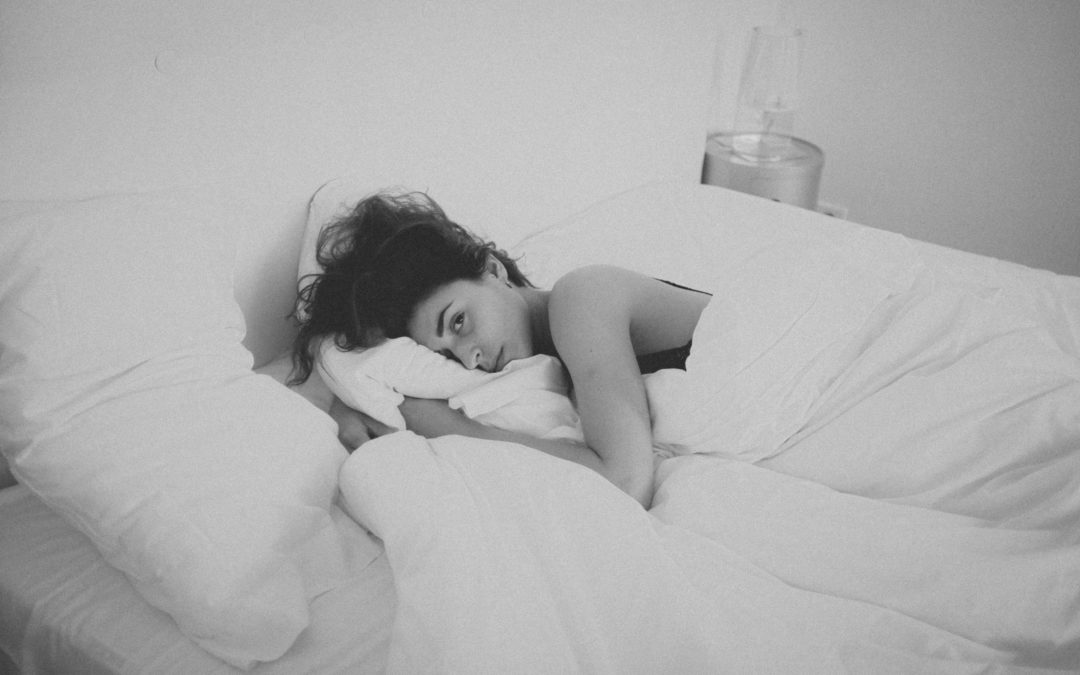For some women Hecate brings along sleep deprivation. In fact, 33 percent of women say that their slumber is negatively affected by their menstrual cycle.
Research shows you can blame this lack of shut-eye on fluctuating hormones: When estrogen and progesterone levels drop right before your period, it’s common to have trouble sleeping. If you find that your period interferes with the quantity or quality of your sleep, try following these tips to create your perfect sleep ritual.
Keep a routine.
Be realistic, I know things change, but if you aim to have a similar time for dinner, rest and bed helps you to create a memory association encouraging sleep.
Make tomorrow’s to-do list.
If you have ‘busy’ head you can’t switch off. Write down everything on your mind and empty your head of all ‘to do’ actions that may keep you thinking.
Take a hot shower or soak in the bath.
The purpose of bedtime routines is to relax and de-stress. On nights when you need extra help loosening up and calming down, a hot shower can work wonders. Use a few drops of your Emgoddess essential oils in bath salts, or bath oil and relax.
A long walk.
Taking a calm, long walk might just do the trick. Walking at a mild pace is relaxing, not taxing. It helps your mind cool down and your body unwind.
Stretch.
Find a quiet place in your apartment or home and allow yourself to recognize how you feel physically. If you sit in an office chair all day, it’s likely that your shoulders, back and legs could use a few minutes of TLC. Stretching also helps you prevent injury and really feel your body, not to mention relieving that all that built-up tension and stress.
Meditate.
Meditation gives space and perspective to calm those racing thoughts that rob you of a good night’s sleep. Mastering meditation takes time and patience. Consistency is key — our brains, used to distractions, won’t automatically focus and stay mindful in the present. Keep at it — this mind-calming practice is the perfect way to end your day.
Turn off your devices.
We have devices in our hands so much we don’t even think about it. But we should really turn off devices in the bedroom. Using TVs, tablets, smartphones, laptops, or other electronic devices before bed delays your body’s internal clock (a.k.a., your circadian rhythm), suppresses the release of the sleep-inducing hormone melatonin, and makes it more difficult to fall asleep.
Use essential oils in a diffuser.
Diffusing essential oils in a diffuser is a wonderful way to encourage sleep. There are many essential oils which have a relaxing, calming and even sedative response on the body. If you want to make your own blend try using a few drops of lavender, clary sage, valerian or marjoram in your bedroom at night and drift into a relaxing sleep.
My personal favourite is the Hecate blend of essential oils. It is deeply relaxing and calming and has a number of essential oils traditionally used for their calming and sedating effects. Remember essential oils have a strong response to the limbic brain. The part of the brain that is linked to memory. So if you are trying to use essential oils to encourage sleep, try to only use this combination only at night and in your bedroom.
Many of you know the benefits of sleep and have experienced the feeling the next morning after a good number of shut eye, so make sure you are aware of how your sleep alters around your period. Keep a chart and make notes of how your sleep changes throughout the month.

